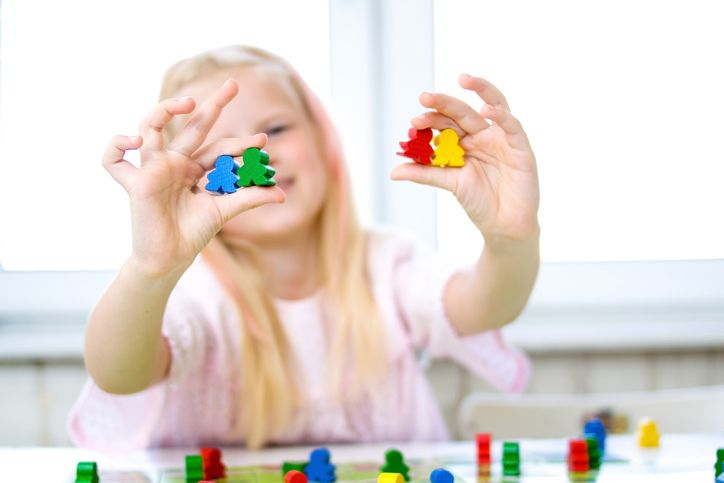Helping Your Child Build Empathy: How a Child Therapist Can Make a Difference
Empathy is one of the most important emotional skills your child can develop. It’s the foundation for strong relationships, emotional intelligence, and effective communication. But not every child picks it up easily. If you’re noticing that your child struggles to recognize or respond to the feelings of others, you may find yourself wondering, “Should I look for a child therapist near me?”
The answer might be yes. Fortunately, with the right support and strategies—especially through child-focused therapy like play therapy—empathy is a skill your child can learn and strengthen over time.
What Is Empathy, and Why Does It Matter?
Empathy is more than just being “nice” or “polite.” It’s the ability to:
-
Understand that others may think or feel differently
-
Recognize emotions like sadness, anger, fear, or joy in someone else
-
Relate those emotions to your own experiences
-
Choose an appropriate and caring response
Children who lack empathy may come across as cold, selfish, or disconnected—not because they are those things, but because they don’t yet know how to interpret others’ emotions. Without empathy, kids struggle with friendships, teamwork, and even family dynamics.
However, empathy can absolutely be taught. And in many cases, a professional therapist can be the most helpful guide on this journey.
Signs Your Child May Be Struggling with Empathy
Not every child will develop empathy at the same pace, and occasional moments of selfishness are completely normal. But here are some common signs that may indicate your child needs additional support:
Red Flags to Watch For:
-
They don’t react when others are visibly upset
-
They blame others for everything, showing little understanding of others’ perspectives
-
They struggle to share or take turns
-
They don’t seem to feel remorse after hurting someone
-
They show disinterest in how their behavior impacts others
If any of these behaviors persist over time, it might be worth searching for a child therapist near me who specializes in emotional development.
How Therapy Teaches Empathy
At Family Strategies Counseling and Mediation, we use play-based approaches to help children learn how to recognize and respond to emotional cues. This is because play is the natural language of children—it’s how they explore, express, and make sense of the world.
Play Therapy Techniques for Empathy:
-
Emotion Naming: We guide children in labeling their own feelings, which is the first step toward recognizing those same emotions in others.
-
Role-Playing with Dolls or Puppets: These tools let children act out different social scenarios and try on different perspectives.
-
Books and Storytelling: Stories with emotional depth help children connect with characters and imagine what it’s like to walk in someone else’s shoes.
-
Therapeutic Games: Games that involve teamwork and emotional response help children practice empathy in real-time interactions.
Additionally, we involve parents or caregivers in the process. We’ll show you how to reinforce these lessons at home by modeling emotional awareness and encouraging empathic behavior throughout the day.
At-Home Practices to Support Empathy
Even if your child is in therapy, the real progress happens when lessons carry over into daily life. Here are a few simple yet powerful strategies we recommend to parents:
Use Emotional Language Frequently
Name your child’s emotions and your own. For example, say, “You’re frustrated because your blocks fell over,” or “I’m feeling a little sad today because I miss Grandma.”
Encourage Perspective-Taking
When conflicts arise, ask your child, “How do you think that made your friend feel?” or “What would you want someone to do if you were in their place?”
Practice with Real-World Examples
Point out emotions in others when watching a movie, reading a book, or even people-watching at the park. Ask your child to guess how someone might be feeling and why.
Celebrate Empathic Behavior
Praise your child when they show empathy. Say something like, “That was so kind of you to help your sister when she was upset—you really understood how she felt.”
When to Consider a Professional
Some children need more than just guidance—they need intervention. That doesn’t make them bad or broken; it simply means they need support tailored to how they learn best. Therapy provides a safe, nonjudgmental space for your child to explore emotions, build self-awareness, and develop lasting skills.
If you’ve tried at-home techniques but feel like nothing’s working, don’t wait. Searching for a child therapist near me could be the first step toward a better future for your child—and for your family.
Therapy Can Help With:
-
Emotional regulation
-
Social skills and peer relationships
-
Understanding consequences of behavior
-
Building self-esteem through emotional mastery
At Family Strategies Counseling and Mediation, our therapists specialize in working with children using developmentally appropriate techniques rooted in play, attachment theory, and emotional intelligence training.
Why Family Strategies Is the Right Fit
We understand how hard it can be to watch your child struggle emotionally. Our therapists are trained not only to engage kids, but also to support families as a whole. With our holistic approach, we empower both children and parents to thrive emotionally.
We proudly serve the Chicagoland area and are a trusted resource for anyone searching for a child therapist near me who can truly make a difference.
Our process includes:
-
Play therapy tailored to your child’s age and needs
-
Parental coaching to extend learning at home
-
Progress tracking and support for long-term growth
-
A compassionate, non-blaming environment for the entire family
Therefore, whether your child needs a gentle push or a structured support system, we’re here to help.
Take the First Step Today
Empathy is one of the most important gifts you can help your child develop. It impacts every relationship they’ll have—for the rest of their life. If you’re concerned that your child struggles with emotional awareness or connection, let’s work together to guide them toward growth.
📞 Call Family Strategies Counseling and Mediation today at (708) 798-5433
📧 Email us at info@Family-Strategy.com
If you’ve been searching for a child therapist near me, we’re ready to help your child thrive—with empathy, emotional intelligence, and the support they need to grow into a caring and connected human being.
Recent Articles




